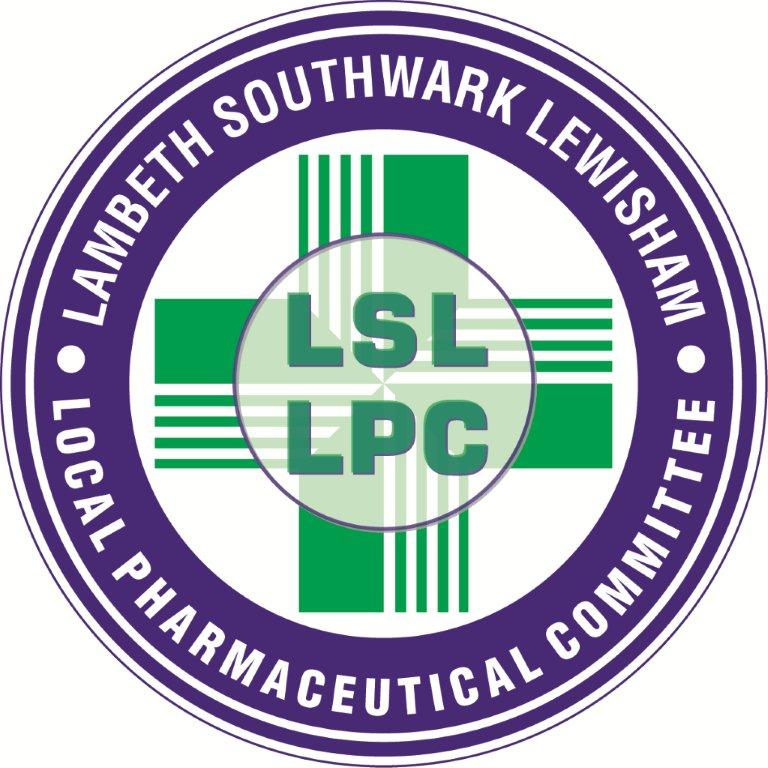Summary Care Records [SCR]
Summary Care Records (SCR)
Privacy Officer Guides and Videos:
The following link will also take you to the PowerPoint from the face to face training: –
SCR Case Studies:
benefits-case-study-falconwood
scr-case-study-1-version-final-0-3-20161116
The NHS is changing how patient information is stored and shared in England, to provide better care for patients. SCRs provide healthcare staff treating patients in an emergency or out-of-hours with faster access to key clinical information
SCR in community pharmacy
Download the factsheet which covers the information on this page about SCR and community pharmacy (PDF, 243.1kB).
Introduction
It has recently been announced that the Health and Social Care Information Centre (HSCIC) has been commissioned by NHS England to lead on the implementation of SCR into community pharmacy. It is planned to commence in Autumn 2015, with completion likely Autumn 2017.
Detailed guidance and training on how to do this will be made available to pharmacists once rollout plans are complete. More information will be shared through engagement and communication activities via existing pharmacy networks.
HSCIC is working in partnership with NHS England and closely with other organisations including the PSNC, Royal Pharmaceutical Society, Pharmacy Voice, and General Pharmaceutical Council (GPhC) throughout this planning process.
SCR benefits for community pharmacy
Findings from the pilot stage (PDF, 411.6kB) showed that using SCR in community pharmacy has proved extremely beneficial. Results indicate it is increasing pharmacists’ ability to treat patients more efficiently and effectively, by reducing the need to contact their GP and providing access to information normally unobtainable out-of-hours.
Other examples of benefits for patients, pharmacists and other parts of the NHS are:
- Improving patient safety by ensuring the patient gets the right medicines
- Improving efficiency by reducing the number of phone calls and reducing the time spent waiting on a call
- Improving effectiveness by supporting clinically appropriate calls to GPs
- Improving the patients experience by reducing patient waiting time for queries to be resolved, and resolving them at the point where they are presenting for care.
Community Pharmacy Case Study (PDF, 51.0kB) – this includes three short case studies on Patient Safety, Emergency Supply and Reduced Referrals.
Find out how SCR can help with emergency supply (PDF, 389.2kB), self care (PDF, 1.4MB) and adverse reactions (PDF, 568.1kB) in this series of storyboards.
Pharmacy access and smartcards
SCR access is restricted to registered professionals only, including;
- pharmacists
- pharmacy technicians
- locums
Currently pharmacy assistants cannot have Smartcards of their own.
- You need a smartcard, along with the specific SCR roles assigned to it.
- You need to be on the N3 network.
- You need to be able to access the NHS Spine web-portal, known as the Summary Care Record Application (SCRa).
The technical baseline requirements can be found on the Spine webpages.
Patients and their SCR
SCR is for patients who have a GP registered in England, irrespective of where they may live. At present, it is only available to clinicians working in England.
A patient can ask to view their own SCR and they can request a print out from the pharmacy professional.
Patients can request information on everybody who has accessed their SCR at any time.
Separately to SCR, there is a programme called Patient Online which intends to provide patients with access to the same types of information directly from the GP system.
Information held on the SCR
Core:
The core information within the SCR contains
- All known allergies & adverse reactions recorded for that patient on the GP system.
- All medications within the following conditions:
– Acute medications (6 or 12 months, depending on the GP system)
– Current repeat medications (with last issue date dependent upon GP system)
– Discontinued repeat medication (if theGP system adds this data, 6 months)
Additional information:
Additional information, such as blood test results or blood pressure readings, can be added with explicit agreement between the patient and the GP. The patient is always in control of any additional information that is added to their SCR.
There is a separate project of work within the SCR programme to develop ‘Additional Information‘ within the SCR. This is currently in the initial stages of roll-out.
Pharmacy use of SCR
Pharmacists will make use of SCR to support their decision making. It is NOT expected that SCRs would be accessed for every patient, or when a routine dispense is being made. It is based on a clinical need at the time decided by the pharmacist or pharmacy technician.
During the POC, the majority of accesses to the SCR were for the purpose of providing an emergency supply of medication out of hours. Use of SCR also supported the additional services pharmacies can provide, such as the New Medicines Service, and Minor Ailments Service.
- You MUST only access the SCR for a patient when you have a legitimate relationship with them i.e. actually involved in the patient’s care at that point in time.
- You MUST only access the record when you have patient’s permission to view it.
Screenshots of what the SCR looks like can be viewed on generic training slides.
Consent and permission to view
A patient must give their express permission for you to view their SCR. This is usually termed as “permission to view”. It is your responsibility to explain what is in an SCR; patient leaflets are available to provide more information. It is not essential to have written permission, this is a local, organisational decision (there is a sample form for recording this on the SCR website). It is also acceptable to get permission to view a patient’s SCR over the phone.
Consent needs to be gained for each patient, at each pharmacy, on a need-by-need basis. If you have a regular patient whom you think you will need to access their SCR frequently, you could ask them once for permission to view their SCR while they are in your care. If you decide to do this it is recommended that you put a note referring to the discussion and what was agreed in that patient’s PMR. You should also regularly review the decision with them. The patient should also be informed that they can change this decision at any time.
All patients in England have been communicated to with regards to having an SCR; they have the ability to opt-in or opt-out at any time. If a patient wishes to opt-out of having an SCR altogether (as opposed to just not letting you view it) then they should be advised to contact their GP practice who will record this preference.
Accessing SCR without a patients consent
The ‘Emergency Access’ option could be used if a patient is not able to give their consent, but you believe there is still a clinical requirement to view their SCR.
In this instance the pharmacy professional would have to exercise professional judgement and if they came to the conclusion that accessing the SCR was necessary and in the patient’s best interests (i.e. there is a possibility that without accessing the patient’s SCR the quality or safety of the decision would be compromised), then they should use emergency access to view the SCR. As with any professional, clinical decision they would have to be happy that they could justify to future investigation that the decision was made in the patient’s best interests. Whenever the “Emergency Access” option is selected it is strongly recommended the pharmacy professional also enters the reason why they are accessing the record without the patients permission.
Examples of when this option could be seen as appropriate in community pharmacy are:
- A patient with language difficulties
- Elderly patients with dementia
- Patients in a care home for whom it is not possible for you to contact to seek permission
- Prescription has been brought in by a 3rd party and you are not able to contact the patient to seek permission
If a carer has legal power of attorney for the patient, then their permission to view the record should be sought.
SCRs for children
SCRs exist for children; in instances where the child understands what is being asked of them, permission to access SCR is their decision. If the child does not understand then it would be the parent’s choice. This is at the pharmacist’s discretion. Refer to GPhC guidance on consent.
Monitoring and auditing access to SCR
- Every action on the SCR application is fully audited and linked to the individual smartcard “logged on” at that time.
- Reports are available to show every record accessed by every individual smartcard user.
- Pharmacies MUST have clear and robust Standard Operating Procedures (SOPs) in place as part of their approach to Information Governance. IG checks will be made.
- Any suspected inappropriate access will be investigated and escalated accordingly.
- Patients can request to see who has accessed their SCR at any time.
- When a user is provided with a smartcard, they agree to use it in line with the smartcards user policy.
All users MUST adhere to professional code of conduct, and/or their contract of employment.
Updating the SCR
SCRs are updated in real-time when a relevant change is made to the patient’s record at the GP practice. The patient’s registered GP practice is the only place where the SCR can be updated or added to.
Pharmacy access to the SCR is read only. If you want to inform the GP that you have taken a particular course of action, for example after issuing emergency supply, you need to communicate with them in the way you currently do now.
Insurance and liability
The National Pharmacy Association has provided the following statement:
“NPA indemnity Insurance will cover members’ access to the SCRs (and associated liabilities) where the pharmacist/pharmacy technician considers it necessary to do so (as well as any amendments the pharmacist/pharmacy technician decides to make to the SCR when this facility is enabled and available in the future) provided that this is done in line with available published guidelines, the pharmacy’s standard operating procedure (SOP) governing consent and access to SCR and use of the information therein.”
The General Pharmaceutical Council released a statement regarding liability:
“Pharmacists’ access to patient medical records is a welcome and positive step towards enabling pharmacy professionals to deliver improved outcomes for patients. We believe that access to records will increase dialogue and communication and improve collaboration with other healthcare professionals. Whilst this is not a new area for some of the profession, for example those working in hospitals or those who work as prescribers, we recognise that this is a developing area for community pharmacy.
A pharmacist’s responsibility is to make the care of patients their first concern. Pharmacists who can access patient medical records must ensure that they apply the principles and requirements of conduct, ethics and performance to any additional information that they can access as result of these changes. Our standards make clear a pharmacist’s responsibility in relation to confidentiality and consent, as well as ‘getting all the information you require to assess a person’s needs in order to give the appropriate treatment and care’.
Our standards for registered pharmacies also make clear the responsibilities which owners and superintendents hold and are accountable for, including that appropriate risk management is in place; that there is appropriate indemnity or insurance; and that information is managed appropriately. The GPhC’s interest, either from a professional fitness to practise issue, or through inspections of pharmacies, will be to consider and ask how these issues have been managed appropriately.
All professionals, and employers, have to manage and consider their professional responsibilities as well as any liabilities. The extent of any liabilities arising, which are not new for health professionals including pharmacy professionals working in other sectors, is essentially a wider legal question about which legal advice, or advice from an insurer should be sought if necessary.”
Find out more about access to SCR from the following professional bodies and pharmacy organisations:
Don’t miss out on your £200 SCR payment!
If your Smartcard has been updated with the Summary Care Record (SCR) role please do the following:
Please follow the 5 simple steps below to access SCR for the first time and begin to realise the benefits it offers you and all your patients:
Step 1 – Put your smartcard in to the card reader, enter your passcode and select your role
Step 2 – Open Internet Explorer (IE):
Step 3 – Enter the following into the IE address field: https://portal.national.ncrs.nhs.uk/portal/dt, and press ‘Enter’ key:
Step 4 – From the list of options presented, click to select ‘Launch Summary Care Record (SCR)’ (note, this is to access the Summary Care Records; for Privacy Officer access click to select ‘Launch Alert Viewer’ instead)
Step 5 – Access the SCR of a test dummy patient by entering the NHS number 999 028 1025 – This will automatically trigger a one off payment of £200.
Additional Tips and Resources
- Watch the short video called “How to access SCR – Demo” on your SCR App, or on YouTube here
- Use Internet Explorer instead of Google Chrome!
- For any additional resources, such as SOP templates or Privacy Officer Guidance, please visit NHS Digital.
If you have any questions or need any further assistance please click here. Please also contact London SCR Team if you have yet to provide a copy of your CPPE, AUA or smartcard details for yourself and your privacy officer by clicking here.




